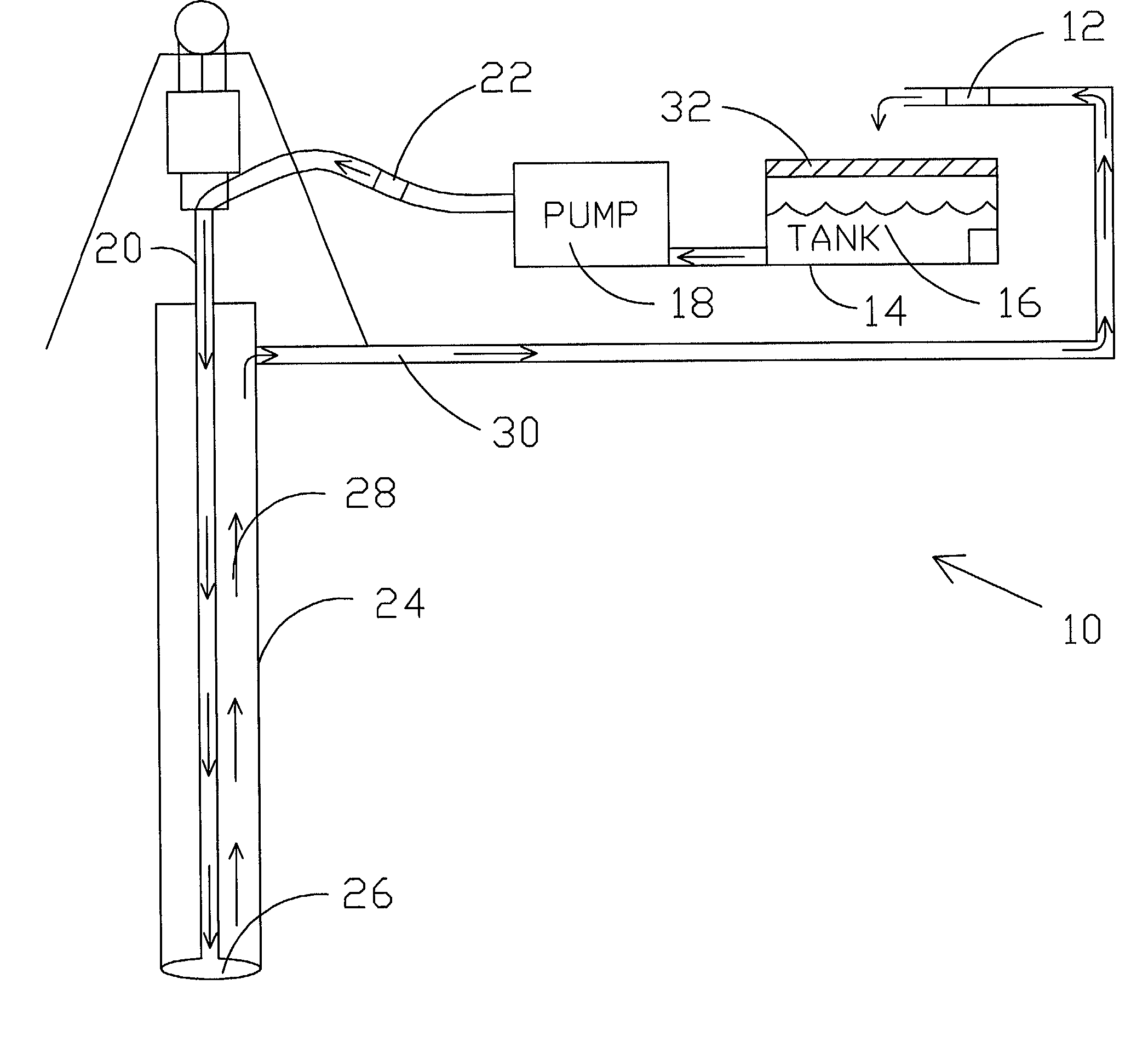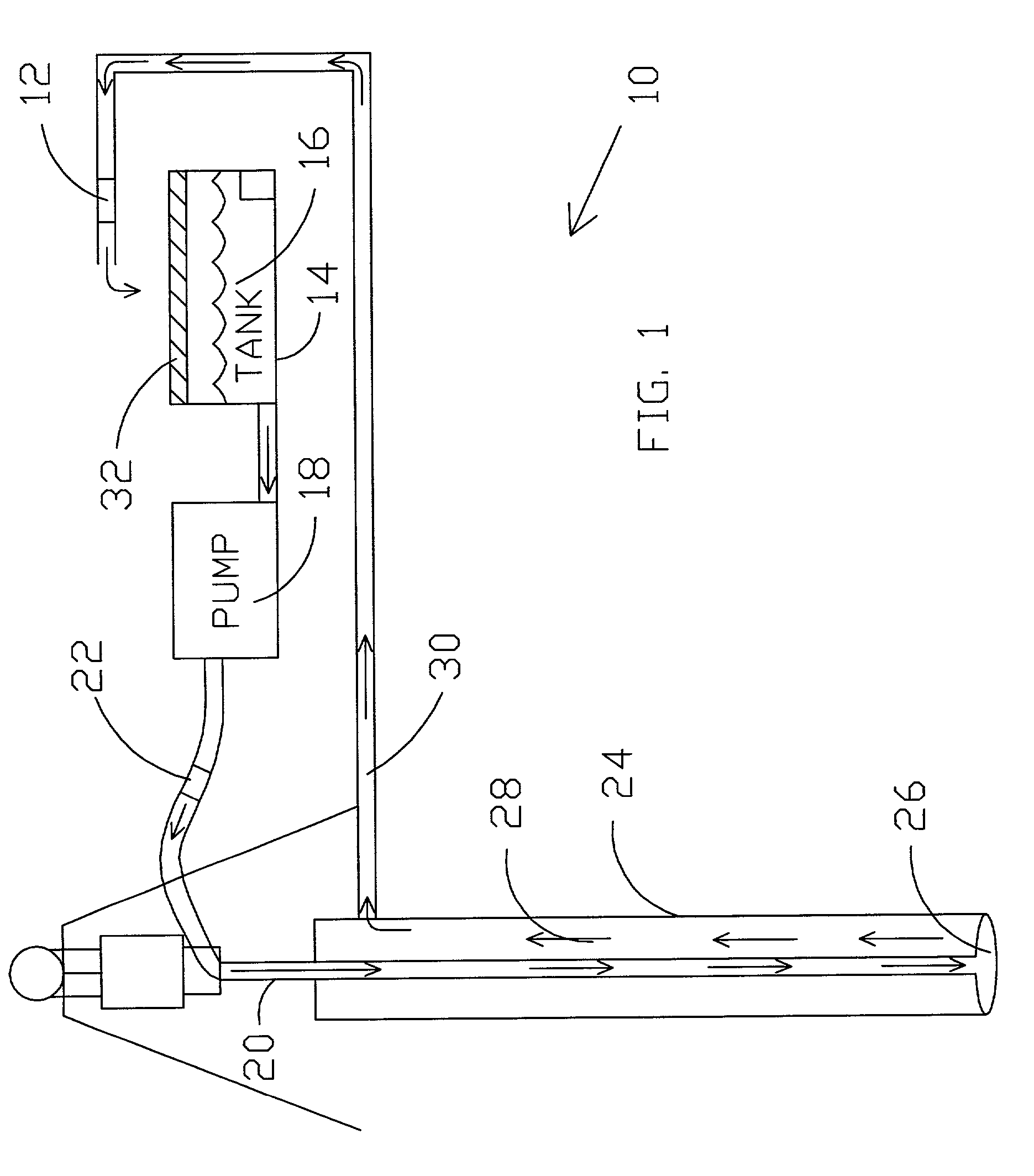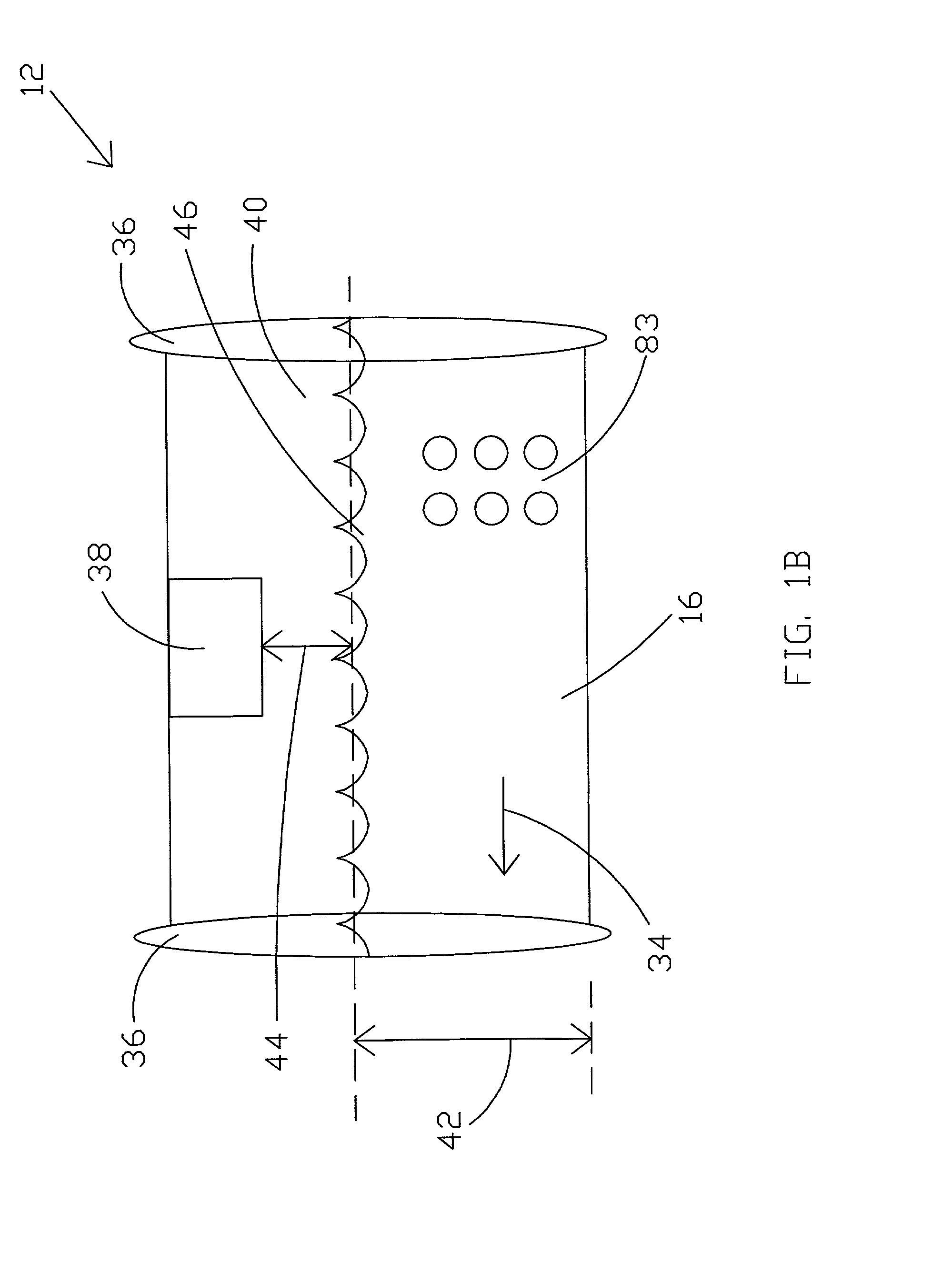Measurment system and method
a measurement system and measurement method technology, applied in the field of fluid measurement, can solve the problems of increasing the potential for a blowout, reducing the hydrostatic pressure, and affecting the flow rate of the system,
- Summary
- Abstract
- Description
- Claims
- Application Information
AI Technical Summary
Benefits of technology
Problems solved by technology
Method used
Image
Examples
Embodiment Construction
[0061] In one presently preferred embodiment of the invention, a primary object of a mass measuring system is to measure the entrance and the exit masses of drilling fluid while drilling a well hole. After the input mass of the fluid is determined, the added or lost mass at the exit reveals the mass being generated or lost during drilling. This should provide early warning of trouble during the drilling process and possibly avoid the loss of a hole.
[0062] The present invention provides a sensing system that can provide accurate volume and density measurements of drilling fluid in one or more locations of the drilling fluid circulation stream as the drilling fluid is circulated into and out of the wellbore during drilling operations. To determine mass flow, the present invention preferably determines fluid velocity and density and then calculates instantaneous mass flow and / or mass flow over a selected time period. In one preferred embodiment of the invention, the entire fluid flow i...
PUM
 Login to View More
Login to View More Abstract
Description
Claims
Application Information
 Login to View More
Login to View More - R&D
- Intellectual Property
- Life Sciences
- Materials
- Tech Scout
- Unparalleled Data Quality
- Higher Quality Content
- 60% Fewer Hallucinations
Browse by: Latest US Patents, China's latest patents, Technical Efficacy Thesaurus, Application Domain, Technology Topic, Popular Technical Reports.
© 2025 PatSnap. All rights reserved.Legal|Privacy policy|Modern Slavery Act Transparency Statement|Sitemap|About US| Contact US: help@patsnap.com



